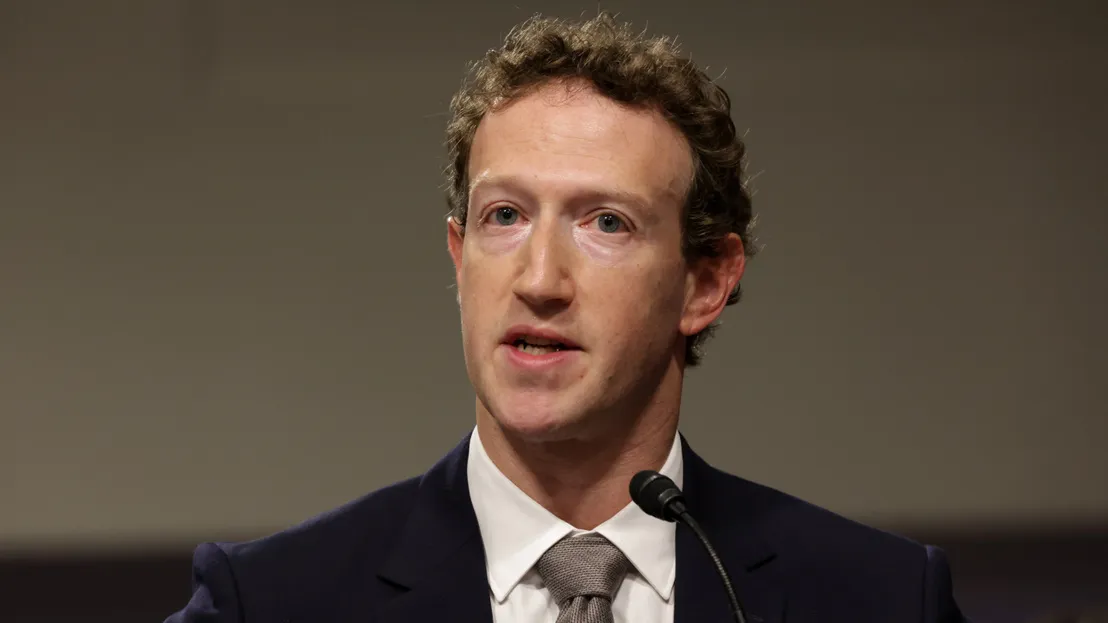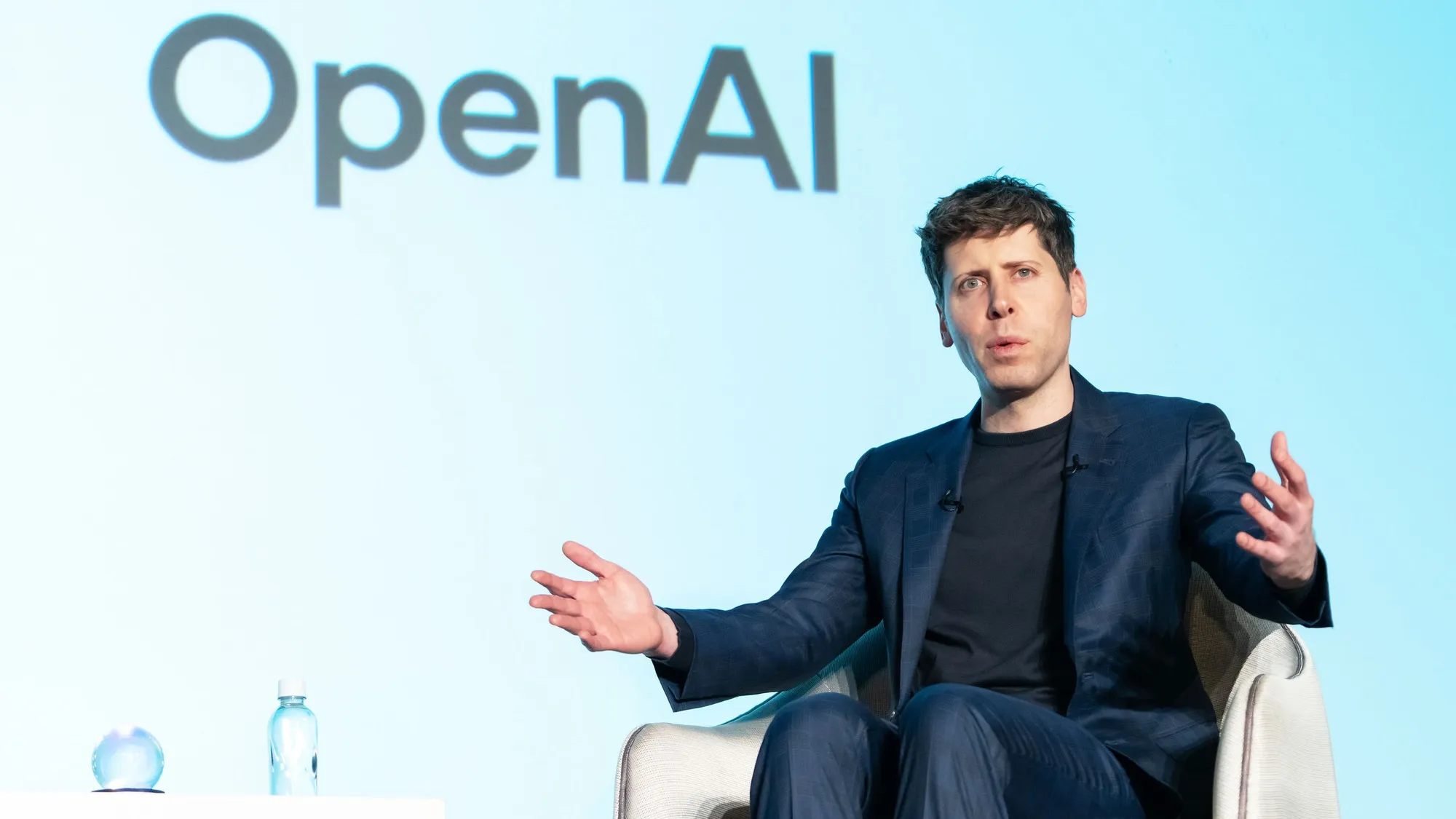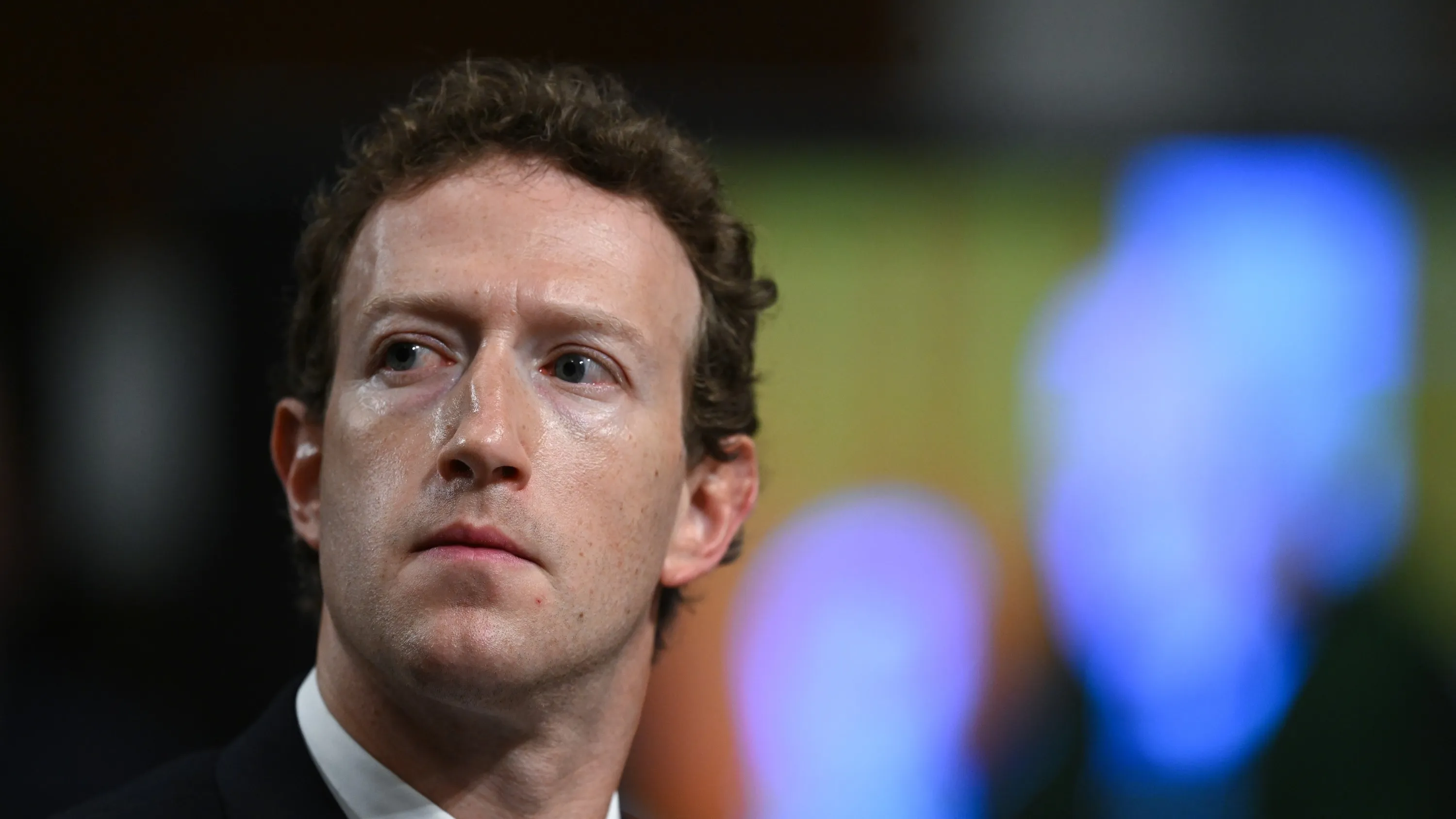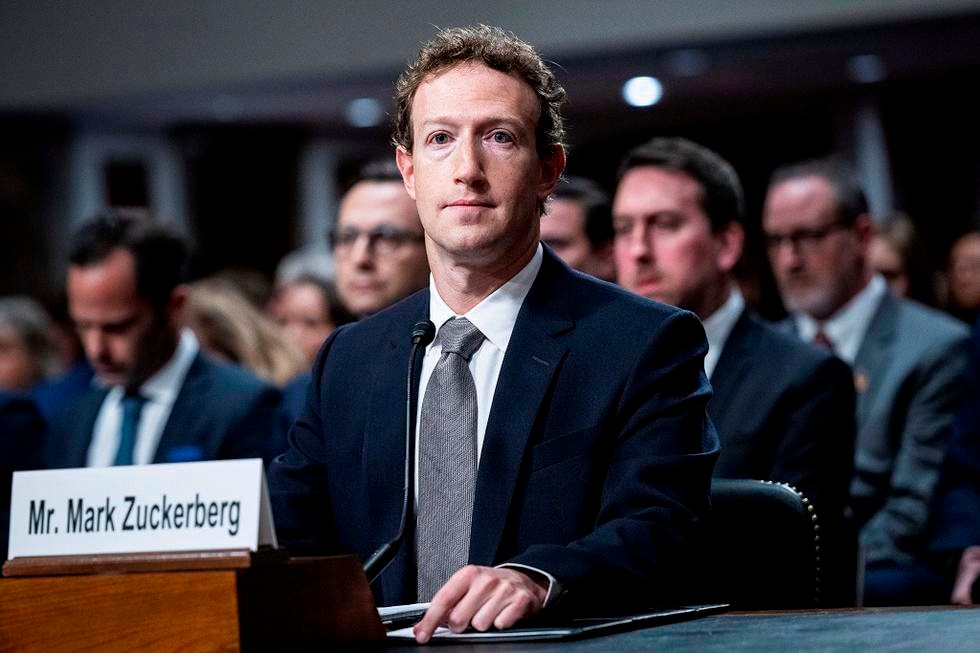

Mark Zuckerberg Shocks: Agrees With Sam Altman on the AI Bubble, Yet Keeps Spending Billions
When two of the most influential figures in Silicon Valley—Mark Zuckerberg and Sam Altman—share their thoughts on the future of artificial intelligence, the entire tech world pays attention. What surprised many industry experts and business analysts recently was Zuckerberg’s open agreement with Altman’s warning about an AI bubble. For years, Meta’s CEO has been known for his aggressive investments in emerging technologies, and acknowledging a potential bubble seemed like a rare moment of caution. Yet in a bold contradiction, Zuckerberg continues to allocate billions of dollars toward AI research, development, and large-scale infrastructure. This dual position has sparked intense debate: is Zuckerberg being a genius visionary by preparing for both risk and opportunity, or is he gambling recklessly with Meta’s future?
The AI Bubble Explained
Before understanding Zuckerberg’s perspective, it’s important to define what an AI bubble means. In finance and technology, a bubble occurs when the excitement surrounding a trend drives investments, valuations, and public expectations to levels disconnected from actual performance or realistic value. Historically, bubbles like the dot-com boom of the late 1990s and the crypto surge of the 2010s have ended in dramatic crashes, leaving investors with major losses. The concern with artificial intelligence is that companies and startups are receiving immense funding, sometimes without proven products or sustainable business models.
Sam Altman, the CEO of OpenAI, has repeatedly cautioned against inflated expectations. He points out that while AI has transformative potential, not every claim being made today will materialize. He draws parallels with the dot-com era, when overinvestment led to widespread collapse, but also paved the way for lasting giants like Amazon and Google.
By agreeing with Altman, Mark Zuckerberg signaled awareness that the current hype around AI could follow a similar trajectory. Not every AI product will succeed, and not every company will survive. Yet, unlike investors who might step back in caution, Zuckerberg believes the best strategy is to lean in even harder.

Why Zuckerberg Still Invests Billions Despite the Risks
For Zuckerberg, acknowledging the bubble is not the same as retreating from it. Instead, he sees AI as both an inevitable future and a race in which slowing down could mean irrelevance. Several key reasons explain why Meta continues its heavy spending.
Long-term vision is central to Zuckerberg’s thinking. He has often reminded investors that Meta is not just a social media company but a builder of digital ecosystems. From Facebook to Instagram, WhatsApp, and Oculus, his strategy has always been focused on long horizons. By investing in AI today, Zuckerberg ensures that Meta remains at the forefront when the technology matures.
Competition with tech giants also fuels this decision. Google, Microsoft, Apple, and Amazon are all pouring resources into AI. Microsoft has partnered with OpenAI, while Google continues to expand its DeepMind projects. For Meta to secure its relevance, it cannot afford to lag behind.
Integration with the metaverse is another critical factor. Zuckerberg has rebranded the entire company around the metaverse, a bold virtual ecosystem he envisions as the next internet. Building that vision requires advanced AI—whether for lifelike avatars, intuitive interfaces, or real-time virtual interactions. Without strong AI, the metaverse would remain a clunky experiment rather than a seamless experience.
Advertising and revenue growth also depend on AI. Meta’s core business model is still advertising, and AI tools help the company deliver hyper-personalized ads, improve targeting, and automate content creation. With competitors like TikTok using advanced algorithms to dominate engagement, Meta’s survival depends on AI-powered advertising innovation.
Finally, talent acquisition plays a big role. By demonstrating its commitment to AI, Meta attracts world-class researchers and engineers. Talent tends to flow to the companies making the boldest bets, and Zuckerberg understands that securing the best minds is as valuable as securing capital.
Sam Altman’s Warning Versus Zuckerberg’s Boldness
While Zuckerberg embodies aggressive risk-taking, Sam Altman’s position highlights caution. Altman has spoken about the dangers of overvalued AI startups, unrealistic timelines, and public disappointment if promises fall short. He emphasizes sustainability, ethical guardrails, and responsible innovation.
The contrast between the two leaders demonstrates a philosophical split within Silicon Valley. Altman represents prudence, while Zuckerberg embodies ambition. Yet both ultimately agree on the transformative power of AI. Altman doesn’t deny its potential, and Zuckerberg doesn’t deny its risks. Together, their perspectives capture the tension every investor feels: should the industry charge ahead or pace itself carefully?
Meta’s Massive AI Projects
To understand the scale of Zuckerberg’s gamble, it helps to examine what Meta is funding. The company is building infrastructure and products that could reshape both social media and the future internet.
LLaMA (Large Language Model Meta AI) is Meta’s answer to systems like GPT. Unlike many closed-source models, LLaMA has been partially open to researchers, signaling Zuckerberg’s strategy of broad collaboration while still competing with giants.
AI-powered advertising systems form another focus. Meta is developing tools to help businesses create ad campaigns more effectively with AI-driven content and targeting. For a company that earns most of its revenue from ads, this investment is crucial.
AI integration in the metaverse is equally ambitious. From realistic avatars to natural speech recognition and AI-driven moderation, Meta wants to make virtual worlds as seamless as possible.
AI-driven content moderation is also a massive area of investment. With billions of users across Facebook, Instagram, and WhatsApp, moderating harmful or misleading content requires scalable AI systems.
Genius or Reckless? The Debate
The tech community remains divided on whether Zuckerberg’s approach is brilliance or folly.
Supporters argue that Zuckerberg has proven his ability to anticipate the future. When he acquired Instagram in 2012 and WhatsApp in 2014, critics called it reckless spending. Today, those acquisitions define Meta’s global dominance. Similarly, investing in AI—even during a potential bubble—may position Meta as the ultimate winner when the dust settles.
Critics, however, warn that Meta is stretching itself thin. Billions have already been lost on the metaverse, with many analysts skeptical about mainstream adoption. Adding massive AI investments could place further strain on Meta’s finances, especially if revenues slow. To them, Zuckerberg is gambling on hype without clear short-term returns.

Lessons from Past Bubbles
The dot-com bubble provides a clear historical lesson. Companies like Pets.com collapsed, but others like Amazon thrived and reshaped the economy. Zuckerberg seems to be betting that Meta will be the Amazon of AI—one of the few survivors after the hype fades.
Other bubbles, like the housing market crash of 2008 and the cryptocurrency volatility, also show that bubbles don’t erase the underlying technology. They simply clear out weaker players. For AI, the technology is real and advancing, even if not every startup will survive.
Implications for the Global Tech Industry
Zuckerberg’s strategy does not just affect Meta. By investing billions, he raises the stakes for the entire industry. Competitors must either keep up or risk losing ground. Smaller startups may find themselves squeezed out by the scale of big tech investment.
Regulators are also paying close attention. With Meta pushing aggressively into AI, governments may introduce stricter rules around data privacy, algorithmic bias, and monopolistic behavior. The outcome of Zuckerberg’s gamble could accelerate regulation worldwide.
The Human Side of Zuckerberg’s Gamble
Behind the financial headlines lies Zuckerberg’s personal reputation. He has often been portrayed as a risk-taker, sometimes stubborn, sometimes visionary. By agreeing with Altman, he shows self-awareness. By continuing to invest, he shows determination. This duality paints Zuckerberg as a leader who sees both the dangers and the opportunities but refuses to let fear dictate strategy.
The Road Ahead for Meta
If Zuckerberg’s gamble succeeds, Meta will not only dominate social media but also shape the next wave of AI-powered interaction. Imagine personal AI assistants across Instagram, AI companions in the metaverse, and advertising tools so advanced they redefine marketing.
If the gamble fails, Meta could face massive financial strain, investor backlash, and a tarnished reputation. The stakes are incredibly high, and the outcome will influence Silicon Valley’s trajectory for years to come.
Final Thoughts
The clash between Mark Zuckerberg’s bold investment strategy and Sam Altman’s cautious warnings encapsulates the uncertainty of the AI era. Both leaders agree on the technology’s potential, but their strategies differ dramatically. Zuckerberg is betting billions that Meta will emerge as a leader when the hype fades, while Altman insists on balance to avoid disillusionment.
The truth is that technological revolutions often involve bubbles. The internet had one. Renewable energy had one. Cryptocurrencies had one. Each time, most players failed, but a few emerged stronger than ever. Whether Meta joins the winners or suffers the consequences of overreach will depend on how well Zuckerberg can navigate both risk and innovation.
For now, one thing is undeniable: the world is watching closely as Zuckerberg places one of the biggest bets of his career. His decision to agree with Altman yet continue investing billions shows both humility and ambition—a rare combination in Silicon Valley. Whether it proves genius or reckless may define the future of not only Meta but the entire global AI industry.


















